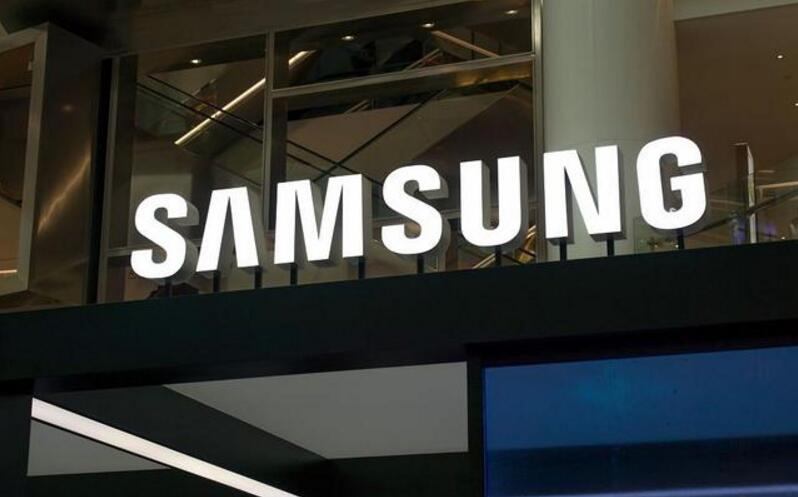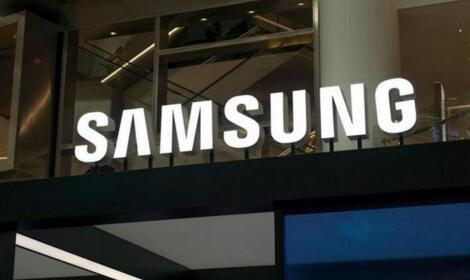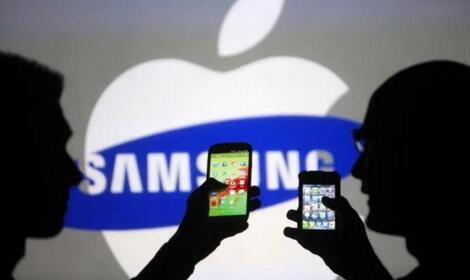三星为何在中国失败了?(2)
正文翻译

三星为何在中国失败了?(2)

三星为何在中国失败了?(2)
评论翻译
Anonymous
After the THAAD controversey back in 2016~2017, the Chinese government basically put a de facto ban on South Korean business and culture in China.
This was economic punishment on Korean companies for the Korean government “hurting the feelings of Chinese.”
在2016年至2017年的萨德争议之后,中国基本上对韩国在中国的商业和文化实施了事实上的禁令。
这是对韩国公司的经济惩罚,因为韩国政府“伤害了中国人的感情”。
Samsung, Hyundai, LG, etc. were all impacted. In particular Lotte was forced to close their stores and sell their business to Chinese “partner” affiliated with the Communist Party for basically a few cents on the dollar. Lotte wrote off 9 billion USD and basically exited China in 2017.
Kpop and Korean dramas which had a huge following in China before 2017 were also banned and the ban is still in place today in 2021. That is why you dont see any Korean cultural content in China anymore.
三星、现代、LG等都受到了冲击,尤其是乐天被迫关闭门店,以基本上几美分的价格将其业务出售给与政府有关联的中国“合作伙伴”,乐天核销了90亿美元并于2017年基本退出了中国。
2017年之前在中国拥有大量粉丝的Kpop和韩剧也被禁播,该禁令至今仍在实施,这就是为什么你在中国看不到任何韩国文化内容的原因。
===========
Dante Wong
, APAC Risk Analyst, UX Writer, and Narrative Designer,Lives in Dublin, Ireland2020–present
Asking whether it’s too late for Samsung to “get into” the Chinese market and then asking what Samsung can do to “get their foot in the door” in regard to the Chinese smartphone market…
These questions come across as very, very strange.
Why?
Because the assumption underlying both these questions is that Samsung has never been in the Chinese market.
Which is plain wrong.
问三星“进入”中国市场是否为时已晚,然后问三星如何才能在中国智能手机市场“站稳脚跟”…
这些问题让人觉得非常奇怪。
为什么?
因为这两个问题背后的假设是,三星从未进入过中国市场。
这显然是错误的。
Samsung was actually an early entrant into the Chinese smartphone market.
Their phones took off quite well and Samsung enjoyed early success.
However, I remember that around 2014 or so, their shares started dropping precipitously.
Why?
三星实际上是中国智能手机市场的早期进入者。
他们的手机很受欢迎,三星也很早就取得了成功。
然而,我记得在2014年左右,他们的市场份额开始急剧下跌。
为什么?
They were slow, lumbering, culturally tone-deaf and because of that, they simply could not compete with Xiaomi, Oppo, Vivo, Huawei, and Apple.
Xiomi started selling smartphones online instead of in physical stores and thus were able to sell phones for much lower prices - Samsung did not react.
Oppo and Vivo focused on capturing the rural areas and lower tier cities - Samsung’s top brass were largely Korean ex-pats… Samsung did not have the relationships or distribution points to go toe-to-toe with Oppo and Vivo in the Chinese countryside. To put it another way, the Korean top brass at Samsung had little idea of the realities of rural China.
因为他们行动迟缓,笨手笨脚,在文化上听不见任何声音,正因为如此,他们根本无法与小米、Oppo、VIVO、华为和苹果竞争。
小米开始在网上而不是实体店销售智能手机,因此他们能够以更低的价格销售手机——三星没有做出反应。
Oppo和VIVO专注于占领农村地区和二线城市——而三星的高层大多是韩国人……三星在中国农村没有与Oppo和VIVO正面交锋的关系或分销点。换句话说,三星的韩国高层对中国农村的现实一无所知。
Apple signed its first major carrier deal in China in 2013, which gave it great distribution, and of course, its first big iPhone - the big screen was a hit with Chinese smartphone consumers.
Hawei released the Mate 7, their first extremely competitive flagship phone.
In stark contrast, Galaxy S5, Samsung’s flagship, was … not good. (Google it)
So, Samsung started losing the premium segment to Apple and Huawei.
2013年,苹果在中国签署了第一份大型运营商协议,这让它获得了巨大的分销渠道,当然,它的第一部大屏幕iPhone也受到了中国智能手机消费者的欢迎。
华为发布了第一款极具竞争力的旗舰手机Mate 7。
与之形成鲜明对比的是,三星的旗舰产品Galaxy S5……并不好。(你可以去谷歌搜)
因此,三星开始将高端市场输给苹果和华为。
There were some other culturally tone-deaf blunders.
But Samsung’s worst blunder in China must surely be how it handled the Note 7 crisis.
You should remember the Note 7.
The phone that had, er, fire issues.
Samsung tried to manage this, on a worldwide scale, by calling for a global product recall.
But for whatever reason, Samsung decided that Chinese Note 7s would be exempt from the recall.
Obviously, the outrage from Chinese customers was swift and very vocal.
Eventually, Samsung gave in and recalled the Chinese Note 7s as well - but they never recovered from the reputational damage caused by their bizarre handling of the Chinese Note 7 recall.
还有一些跨文化的错误。
但三星在中国最严重的错误肯定是它如何处理Note 7危机。
你应该记住Note 7。
那个手机有,呃,火灾问题。
三星试图通过呼吁全球召回产品来在全球范围内解决这一问题。
但无论出于何种原因,三星决定将中国的Note 7 排除在召回范围之外。
显然,中国顾客的愤怒是迅速而强烈的。
最终,三星做出了让步,也召回了中国的Note 7,但他们从未从对中国Note 7召回的怪异处理所造成的声誉损害中恢复过来。
By 2018, Samsung had become irrelevant in the Chinese smartphone market.
In 2019, Samsung closed its last smartphone manufacturing plant in China.
In 2021, Samsung’s market share in the Chinese smartphone market was 0.6%.
In short, Samsung is very likely never getting back into the Chinese smartphone market.
[Below: Picture of a Samsung mobile phone store in Shanghai in 2013]
到2018年,三星在中国智能手机市场已变得无关紧要。
2019年,三星关闭了在中国的最后一家智能手机制造厂。
2021年,三星在中国智能手机市场的市场份额为0.6%。
简而言之,三星很可能永远不会重返中国智能手机市场。
Feelix Wee
The Note 7 issue was truly bizzare. It's like Samsung telling Chinese customers that their rights and lives aren't important when the Note decides to become an exploding grenade. Have Samsung ever explained why they initially behaved like this?
他们对Note 7的处理方式真的很奇怪,这就像三星在告诉中国客户,当他们的手机变成一枚爆炸的手榴弹时,他们的权利和生命并不重要。三星有没有解释过他们最初为什么会这样做?
Nathaniel
The problem was originally thought to be a faulty battery issue and the Chinese phones used a different battery so they shouldn’t have the issue.
The problem was that it was a design fault. The case was too small so when the battery expanded slightly when charging it rubbed and could explode.
Having a different brand of battery didn’t stop the flaw but it took a few weeks to find this out and Samsung assumed anyone that had a phone explode was faking it since they figured out incorrectly that it was faulty batteries which wouldn’t be an issue in China.
问题最初被认为是电池故障,在中国销售的NOTE 7使用了不同的电池,因此不应该出现问题。
问题在于这是一个设计错误。电池外壳太小,所以当充电时电池会稍微膨胀,它会摩擦并可能发生爆炸。
拥有不同品牌的电池并不能阻止这个缺陷,但三星花了几周时间才发现这一点,三星认为任何发生手机爆炸的人都是在作假,因为他们错误地认为这是电池故障,而这在中国不会成为问题。
Feelix Wee
Thank you for your answer. I was a Note 7 user too. Samsung handled the situation far far faster in my country and there's no question or deliberation about type of battery being used or whatnot. It is strange that Samsung values a country with a mere 31 million souls vs that of 1,400 million souls.
谢谢你的回答。我也是Note 7的用户。在我的国家,三星处理这种情况的速度要快得多,而且对于所使用的电池类型或诸如此类的问题也没有疑问或考虑。奇怪的是,三星看重的是一个只有3100万用户的国家,而不是一个有着14亿用户的国家。
Nathaniel
The issue wasn't the size of the country but that even though the product was the same name it had different materials.
Having a different policy by itself wasn't a mistake. What was a mistake was waiting for so long before issuing a recall.
问题不在于这个国家的大小,而在于尽管产品名称相同,但使用的材料不同。
拥有不同的售后政策本身并不是一个错误,等了这么久才宣布召回才是错误。
George
Its because China stole techs and made it on their own. A lot of companies that went to China to do do business had same experiences. Stealing, havking techs. china might be proud that they make decent phones and techs now. But it came from shady stealing and copying and all that stuff. Look whats happening to hawei, all that money putting, they cant even make good chips
这是因为中国oo了三星的技术,并制造了自己的手机。很多去中国做生意的公司都有同样的经历。中国人会t东西,搞技术,中国可能会为他们现在能够生产出像样的手机和技术而感到自豪,但它来自于阴暗的TQ和CX等等。看看华为发生了什么,他们花了那么多钱,却连好的芯片都做不出来。
Altos Chu
On your allegation of theft, if you have evidence/facts/info, please provide info and lixs. Otherwise, baseless slanders and accusation of theft is just another item of disinformation.
Let's dissect your incorrect statements in detail:
1.Huawei can't make good chip: wrong. Hisense division of Huawei have designed world class chips to be manufactured by TSMC for Huawei phones. US then crafted laws and regulations to stop TSMC cold (after putting Huawei on entity list).
关于你的盗窃指控,如果你有证据/事实/信息,请提供信息和链接。否则,毫无根据的诽谤和盗窃指控只是另一种虚假信息。
让我们详细分析一下你的错误陈述:
1. 华为做不好芯片:错。华为的海思设计了由台积电代工的世界级芯片,但美国随后制定的法律法规阻止了台积电(在将华为列入实体名单后)。
2. On the other hand, if you mean ‘made’ includes manufacturing of the good chips, then not even Apple, Amazon, Google, Microsoft, Dell, HP, Cicso, AMD, Nvidia are doing any IC manufacturing. Only TSMC, Samsung, Intel are in the advanced IC mfr. No companies in China is in this as US blocked the sales of advanced IC mfr equipment (such as ASML lithography machine) to China.
另一方面,如果你说的“制造”的意思包括优质芯片的制造,那么就连苹果、亚马逊、谷歌、微软、戴尔、惠普、思科、AMD、英伟达也没有做任何芯片制造,只有台积电、三星、英特尔是先进的集成电路制造商。在美国阻止向中国销售先进的芯片制造设备(如ASML光刻机)的情况下,中国没有一家公司参与其中。
3. As to the rise of cell phone mfr such aXiaomei...on your allegation of theft, if you have evidence/facts, please provide info and lixs. Otherwise, baseless slander and accusation of theft is just another item of disinformation. If anyone knows how cell phone industry works, one would know that the it has everything to do with the maturation of cell phone industry.Just like PC today, do you think you need to steal anything to assemble a PC? No. even a high school kid can assemble a PC today: get a motherboard with CPU and BIOS and memories, disks, power supply, keyboard and mouse, OS. Voila! Now, more sophiscated mfrs will design their motherboards, but here they get a lot help from Intel/AMD/Nvidia in the form of design spec, reference design, application notes, even application engineers to help and support you. Why? they just want to sell more CPU. Ditto for other IC mfr. As an upstream mfr, you need to provide enough info and support for the downstream mfr. Nothing shady here. No stealing involved. Just normal course of business.
关于小米等手机制造商的崛起....关于你的盗窃指控,如果你有证据/事实,请提供信息和链接。否则,毫无根据的诽谤和盗窃指控只是另一种虚假信息。如果有人知道手机产业是如何运作的,他们就会知道它与手机产业的成熟度有着千丝万缕的联系。就像今天的个人电脑一样,你觉得你需要偷东西来组装个人电脑吗?不会。现在,即使是高中生也可以组装一台电脑:你只需拥有一块带有CPU、BIOS、内存、磁盘、电源、键盘和鼠标、操作系统的主板即可。瞧!现在,更复杂的制造商将设计他们的主板,他们能够从Intel/AMD/Nvidia获得了很多帮助,包括设计规范、参考设计、应用程序说明,甚至应用程序工程师来帮助和支持您。为什么?其他IC制造商也一样,他们只是想卖更多的CPU。作为上游制造商,您需要为下游制造商提供足够的信息和支持。这里没什么可疑的,不涉及偷窃,这只是正常的业务过程。
Cell phone industry has a similar ecosystem. Qualcomm and Mediatek are the equivalent of Intel/AMD, Android OS to Windows/Linux.All these is product and technical info are shared by the upstream mfr. So companies like Xuaomei started by simply assembling say Qualcomm/Mediatek reference designs initially, with a bit of customization. Then they progress to design more and more around the chip and integrate with different/more cost effective components. The ultimate is to design the CPU/baseband, like Huawei. (Mfr of chip is so specialized, expensive and skill intensive that not even Apple wants to get in).
So…. just normal evolution of cell phones industry. If you want to accuse that stealing were involved, you need to provide credible info.
手机行业也有类似的生态系统。高通和联发科相当于Intel/AMD,Android操作系统相当于Windows/Linux,所有这些都是上游制造商共享的产品和技术信息。因此,像小米这样的公司最初只是简单地组装高通/联发科参考设计,并进行一些定制。然后,他们开始越来越多地围绕芯片进行设计,并与不同/更具成本效益的组件集成。最高级的是像华为那样设计CPU/基带(芯片制造商是如此专业、昂贵和技术密集,以至于连苹果都不想加入)。
所以…这只是手机行业的正常发展,如果你想指控涉及盗窃,你需要提供可信的信息。
After the THAAD controversey back in 2016~2017, the Chinese government basically put a de facto ban on South Korean business and culture in China.
This was economic punishment on Korean companies for the Korean government “hurting the feelings of Chinese.”
在2016年至2017年的萨德争议之后,中国基本上对韩国在中国的商业和文化实施了事实上的禁令。
这是对韩国公司的经济惩罚,因为韩国政府“伤害了中国人的感情”。
Samsung, Hyundai, LG, etc. were all impacted. In particular Lotte was forced to close their stores and sell their business to Chinese “partner” affiliated with the Communist Party for basically a few cents on the dollar. Lotte wrote off 9 billion USD and basically exited China in 2017.
Kpop and Korean dramas which had a huge following in China before 2017 were also banned and the ban is still in place today in 2021. That is why you dont see any Korean cultural content in China anymore.
三星、现代、LG等都受到了冲击,尤其是乐天被迫关闭门店,以基本上几美分的价格将其业务出售给与政府有关联的中国“合作伙伴”,乐天核销了90亿美元并于2017年基本退出了中国。
2017年之前在中国拥有大量粉丝的Kpop和韩剧也被禁播,该禁令至今仍在实施,这就是为什么你在中国看不到任何韩国文化内容的原因。
===========
Dante Wong
, APAC Risk Analyst, UX Writer, and Narrative Designer,Lives in Dublin, Ireland2020–present
Asking whether it’s too late for Samsung to “get into” the Chinese market and then asking what Samsung can do to “get their foot in the door” in regard to the Chinese smartphone market…
These questions come across as very, very strange.
Why?
Because the assumption underlying both these questions is that Samsung has never been in the Chinese market.
Which is plain wrong.
问三星“进入”中国市场是否为时已晚,然后问三星如何才能在中国智能手机市场“站稳脚跟”…
这些问题让人觉得非常奇怪。
为什么?
因为这两个问题背后的假设是,三星从未进入过中国市场。
这显然是错误的。
Samsung was actually an early entrant into the Chinese smartphone market.
Their phones took off quite well and Samsung enjoyed early success.
However, I remember that around 2014 or so, their shares started dropping precipitously.
Why?
三星实际上是中国智能手机市场的早期进入者。
他们的手机很受欢迎,三星也很早就取得了成功。
然而,我记得在2014年左右,他们的市场份额开始急剧下跌。
为什么?
They were slow, lumbering, culturally tone-deaf and because of that, they simply could not compete with Xiaomi, Oppo, Vivo, Huawei, and Apple.
Xiomi started selling smartphones online instead of in physical stores and thus were able to sell phones for much lower prices - Samsung did not react.
Oppo and Vivo focused on capturing the rural areas and lower tier cities - Samsung’s top brass were largely Korean ex-pats… Samsung did not have the relationships or distribution points to go toe-to-toe with Oppo and Vivo in the Chinese countryside. To put it another way, the Korean top brass at Samsung had little idea of the realities of rural China.
因为他们行动迟缓,笨手笨脚,在文化上听不见任何声音,正因为如此,他们根本无法与小米、Oppo、VIVO、华为和苹果竞争。
小米开始在网上而不是实体店销售智能手机,因此他们能够以更低的价格销售手机——三星没有做出反应。
Oppo和VIVO专注于占领农村地区和二线城市——而三星的高层大多是韩国人……三星在中国农村没有与Oppo和VIVO正面交锋的关系或分销点。换句话说,三星的韩国高层对中国农村的现实一无所知。
Apple signed its first major carrier deal in China in 2013, which gave it great distribution, and of course, its first big iPhone - the big screen was a hit with Chinese smartphone consumers.
Hawei released the Mate 7, their first extremely competitive flagship phone.
In stark contrast, Galaxy S5, Samsung’s flagship, was … not good. (Google it)
So, Samsung started losing the premium segment to Apple and Huawei.
2013年,苹果在中国签署了第一份大型运营商协议,这让它获得了巨大的分销渠道,当然,它的第一部大屏幕iPhone也受到了中国智能手机消费者的欢迎。
华为发布了第一款极具竞争力的旗舰手机Mate 7。
与之形成鲜明对比的是,三星的旗舰产品Galaxy S5……并不好。(你可以去谷歌搜)
因此,三星开始将高端市场输给苹果和华为。
There were some other culturally tone-deaf blunders.
But Samsung’s worst blunder in China must surely be how it handled the Note 7 crisis.
You should remember the Note 7.
The phone that had, er, fire issues.
Samsung tried to manage this, on a worldwide scale, by calling for a global product recall.
But for whatever reason, Samsung decided that Chinese Note 7s would be exempt from the recall.
Obviously, the outrage from Chinese customers was swift and very vocal.
Eventually, Samsung gave in and recalled the Chinese Note 7s as well - but they never recovered from the reputational damage caused by their bizarre handling of the Chinese Note 7 recall.
还有一些跨文化的错误。
但三星在中国最严重的错误肯定是它如何处理Note 7危机。
你应该记住Note 7。
那个手机有,呃,火灾问题。
三星试图通过呼吁全球召回产品来在全球范围内解决这一问题。
但无论出于何种原因,三星决定将中国的Note 7 排除在召回范围之外。
显然,中国顾客的愤怒是迅速而强烈的。
最终,三星做出了让步,也召回了中国的Note 7,但他们从未从对中国Note 7召回的怪异处理所造成的声誉损害中恢复过来。
By 2018, Samsung had become irrelevant in the Chinese smartphone market.
In 2019, Samsung closed its last smartphone manufacturing plant in China.
In 2021, Samsung’s market share in the Chinese smartphone market was 0.6%.
In short, Samsung is very likely never getting back into the Chinese smartphone market.
[Below: Picture of a Samsung mobile phone store in Shanghai in 2013]
到2018年,三星在中国智能手机市场已变得无关紧要。
2019年,三星关闭了在中国的最后一家智能手机制造厂。
2021年,三星在中国智能手机市场的市场份额为0.6%。
简而言之,三星很可能永远不会重返中国智能手机市场。
Feelix Wee
The Note 7 issue was truly bizzare. It's like Samsung telling Chinese customers that their rights and lives aren't important when the Note decides to become an exploding grenade. Have Samsung ever explained why they initially behaved like this?
他们对Note 7的处理方式真的很奇怪,这就像三星在告诉中国客户,当他们的手机变成一枚爆炸的手榴弹时,他们的权利和生命并不重要。三星有没有解释过他们最初为什么会这样做?
Nathaniel
The problem was originally thought to be a faulty battery issue and the Chinese phones used a different battery so they shouldn’t have the issue.
The problem was that it was a design fault. The case was too small so when the battery expanded slightly when charging it rubbed and could explode.
Having a different brand of battery didn’t stop the flaw but it took a few weeks to find this out and Samsung assumed anyone that had a phone explode was faking it since they figured out incorrectly that it was faulty batteries which wouldn’t be an issue in China.
问题最初被认为是电池故障,在中国销售的NOTE 7使用了不同的电池,因此不应该出现问题。
问题在于这是一个设计错误。电池外壳太小,所以当充电时电池会稍微膨胀,它会摩擦并可能发生爆炸。
拥有不同品牌的电池并不能阻止这个缺陷,但三星花了几周时间才发现这一点,三星认为任何发生手机爆炸的人都是在作假,因为他们错误地认为这是电池故障,而这在中国不会成为问题。
Feelix Wee
Thank you for your answer. I was a Note 7 user too. Samsung handled the situation far far faster in my country and there's no question or deliberation about type of battery being used or whatnot. It is strange that Samsung values a country with a mere 31 million souls vs that of 1,400 million souls.
谢谢你的回答。我也是Note 7的用户。在我的国家,三星处理这种情况的速度要快得多,而且对于所使用的电池类型或诸如此类的问题也没有疑问或考虑。奇怪的是,三星看重的是一个只有3100万用户的国家,而不是一个有着14亿用户的国家。
Nathaniel
The issue wasn't the size of the country but that even though the product was the same name it had different materials.
Having a different policy by itself wasn't a mistake. What was a mistake was waiting for so long before issuing a recall.
问题不在于这个国家的大小,而在于尽管产品名称相同,但使用的材料不同。
拥有不同的售后政策本身并不是一个错误,等了这么久才宣布召回才是错误。
George
Its because China stole techs and made it on their own. A lot of companies that went to China to do do business had same experiences. Stealing, havking techs. china might be proud that they make decent phones and techs now. But it came from shady stealing and copying and all that stuff. Look whats happening to hawei, all that money putting, they cant even make good chips
这是因为中国oo了三星的技术,并制造了自己的手机。很多去中国做生意的公司都有同样的经历。中国人会t东西,搞技术,中国可能会为他们现在能够生产出像样的手机和技术而感到自豪,但它来自于阴暗的TQ和CX等等。看看华为发生了什么,他们花了那么多钱,却连好的芯片都做不出来。
Altos Chu
On your allegation of theft, if you have evidence/facts/info, please provide info and lixs. Otherwise, baseless slanders and accusation of theft is just another item of disinformation.
Let's dissect your incorrect statements in detail:
1.Huawei can't make good chip: wrong. Hisense division of Huawei have designed world class chips to be manufactured by TSMC for Huawei phones. US then crafted laws and regulations to stop TSMC cold (after putting Huawei on entity list).
关于你的盗窃指控,如果你有证据/事实/信息,请提供信息和链接。否则,毫无根据的诽谤和盗窃指控只是另一种虚假信息。
让我们详细分析一下你的错误陈述:
1. 华为做不好芯片:错。华为的海思设计了由台积电代工的世界级芯片,但美国随后制定的法律法规阻止了台积电(在将华为列入实体名单后)。
2. On the other hand, if you mean ‘made’ includes manufacturing of the good chips, then not even Apple, Amazon, Google, Microsoft, Dell, HP, Cicso, AMD, Nvidia are doing any IC manufacturing. Only TSMC, Samsung, Intel are in the advanced IC mfr. No companies in China is in this as US blocked the sales of advanced IC mfr equipment (such as ASML lithography machine) to China.
另一方面,如果你说的“制造”的意思包括优质芯片的制造,那么就连苹果、亚马逊、谷歌、微软、戴尔、惠普、思科、AMD、英伟达也没有做任何芯片制造,只有台积电、三星、英特尔是先进的集成电路制造商。在美国阻止向中国销售先进的芯片制造设备(如ASML光刻机)的情况下,中国没有一家公司参与其中。
3. As to the rise of cell phone mfr such aXiaomei...on your allegation of theft, if you have evidence/facts, please provide info and lixs. Otherwise, baseless slander and accusation of theft is just another item of disinformation. If anyone knows how cell phone industry works, one would know that the it has everything to do with the maturation of cell phone industry.Just like PC today, do you think you need to steal anything to assemble a PC? No. even a high school kid can assemble a PC today: get a motherboard with CPU and BIOS and memories, disks, power supply, keyboard and mouse, OS. Voila! Now, more sophiscated mfrs will design their motherboards, but here they get a lot help from Intel/AMD/Nvidia in the form of design spec, reference design, application notes, even application engineers to help and support you. Why? they just want to sell more CPU. Ditto for other IC mfr. As an upstream mfr, you need to provide enough info and support for the downstream mfr. Nothing shady here. No stealing involved. Just normal course of business.
关于小米等手机制造商的崛起....关于你的盗窃指控,如果你有证据/事实,请提供信息和链接。否则,毫无根据的诽谤和盗窃指控只是另一种虚假信息。如果有人知道手机产业是如何运作的,他们就会知道它与手机产业的成熟度有着千丝万缕的联系。就像今天的个人电脑一样,你觉得你需要偷东西来组装个人电脑吗?不会。现在,即使是高中生也可以组装一台电脑:你只需拥有一块带有CPU、BIOS、内存、磁盘、电源、键盘和鼠标、操作系统的主板即可。瞧!现在,更复杂的制造商将设计他们的主板,他们能够从Intel/AMD/Nvidia获得了很多帮助,包括设计规范、参考设计、应用程序说明,甚至应用程序工程师来帮助和支持您。为什么?其他IC制造商也一样,他们只是想卖更多的CPU。作为上游制造商,您需要为下游制造商提供足够的信息和支持。这里没什么可疑的,不涉及偷窃,这只是正常的业务过程。
Cell phone industry has a similar ecosystem. Qualcomm and Mediatek are the equivalent of Intel/AMD, Android OS to Windows/Linux.All these is product and technical info are shared by the upstream mfr. So companies like Xuaomei started by simply assembling say Qualcomm/Mediatek reference designs initially, with a bit of customization. Then they progress to design more and more around the chip and integrate with different/more cost effective components. The ultimate is to design the CPU/baseband, like Huawei. (Mfr of chip is so specialized, expensive and skill intensive that not even Apple wants to get in).
So…. just normal evolution of cell phones industry. If you want to accuse that stealing were involved, you need to provide credible info.
手机行业也有类似的生态系统。高通和联发科相当于Intel/AMD,Android操作系统相当于Windows/Linux,所有这些都是上游制造商共享的产品和技术信息。因此,像小米这样的公司最初只是简单地组装高通/联发科参考设计,并进行一些定制。然后,他们开始越来越多地围绕芯片进行设计,并与不同/更具成本效益的组件集成。最高级的是像华为那样设计CPU/基带(芯片制造商是如此专业、昂贵和技术密集,以至于连苹果都不想加入)。
所以…这只是手机行业的正常发展,如果你想指控涉及盗窃,你需要提供可信的信息。










